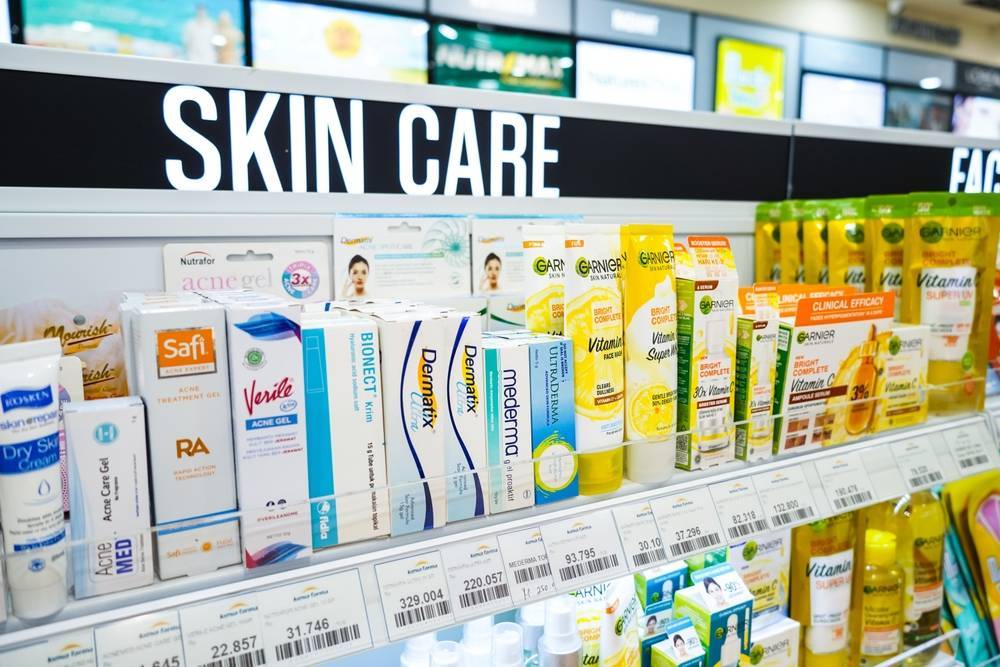Peptides in anti-ageing creams are hailed as a modern elixir for youthful skin.
But the real question lurking behind their glossy advertisements is whether peptides in anti-ageing creams truly stimulate collagen production.
What are Peptides, and Why are They in My Cream?
Peptides are short sequences of amino acids that serve as the fundamental building blocks for proteins, such as collagen, elastin, and keratin, which are vital components of the skin’s structure.
They play a crucial role in various biological activities, including cellular signalling, which is essential for collagen synthesis. In the context of skincare, peptides are commonly included in topical creams and serums for their purported benefits in promoting skin health. Research published in the International Journal of Cosmetic Science suggests that topical application of peptides can indeed stimulate collagen production, helping to improve skin elasticity and reduce the appearance of wrinkles.
This makes peptides a key ingredient in anti-ageing skincare formulations, aiming to rejuvenate and maintain youthful, resilient skin.
The Science Behind Peptides and Collagen Production
The relationship between peptides and collagen production has garnered considerable attention in scientific research, particularly within the field of dermatology. Clinical trials have demonstrated that peptides can have a positive influence on collagen synthesis, although the efficacy is contingent on several variables including the specific formulation of the peptide, its concentration, and the overall composition of the skincare product in which it is incorporated.
A study in the Journal of Investigative Dermatology highlighted that the topical application of certain peptides led to increased collagen production in the skin. However, the study also emphasised that not all peptides are created equal; different peptides showed varying levels of effectiveness in stimulating collagen synthesis.
Another key consideration is the concentration of the peptide in the skincare formulation. The efficacy of peptides in boosting collagen production is highly dependent on their concentration within the product.
Furthermore, the overall composition of the skincare product—including the presence of other active ingredients, the product’s pH level, and its formulation stability—can also influence the efficacy of peptides in promoting collagen production. Therefore, while peptides offer promising benefits in the realm of anti-ageing skincare, their effectiveness is influenced by multiple factors that need to be optimised for desired outcomes.
The Verdict: A Promising Solution?
Peptides are not a one-size-fits-all or stand-alone solution for skin ageing or other skin issues. Consulting a dermatologist or healthcare professional for a personalised skincare regimen is highly recommended, especially for those with specific skin concerns or conditions.
What Consumers Should Look For When Buying Peptides in Anti-ageing Creams:
- Concentration
Check for the concentration of peptides in the product. A higher concentration usually signifies a more potent product, but this also depends on the specific type of peptide used.
- Type of Peptide:
Different peptides serve different purposes; some may be more effective in collagen synthesis, while others may focus on hydration or skin barrier function.
- Other Active Ingredients
As discussed in studies, the overall effectiveness of a peptide product can be influenced by other active ingredients, such as antioxidants and hydrators.
- Product Formulation
Look for products with stable formulations, which will help preserve the integrity of the peptides. Items with airtight packaging are generally better at keeping the peptides stable.
- Clinical Evidence
Products that cite scientific studies or have undergone clinical trials are typically more reliable.
- User Reviews and Recommendations
While not scientific, personal reviews can offer additional insights into a product’s effectiveness.
- Potential Allergens and Irritants
Check the list of ingredients to ensure that the product does not contain elements you might be allergic to.
- Consult Professionals
For the best results, consult a dermatologist, who can tailor advice to your specific skincare needs and conditions.
The Final Word: Your Skin, Your Decision
While a growing body of scientific evidence points towards the beneficial role of peptides in skincare, the ultimate choice remains yours. Deciding whether to incorporate peptides into your skincare routine is a personalised equation that should balance potential effectiveness against possible risks and individual needs.
References
- Role of topical peptides in preventing or treating aged skin – PubMed. (2009, October 1). PubMed. https://doi.org/10.1111/j.1468-2494.2009.00490.x
- Decreased collagen production in chronologically aged skin: roles of age-dependent alteration in fibroblast function and defective mechanical stimulation – PubMed. (2006, June 1). PubMed. https://doi.org/10.2353/ajpath.2006.051302
- Cosmeceutical peptides – PubMed. (2007, October 1). PubMed. https://doi.org/10.1111/j.1529-8019.2007.00148.x

